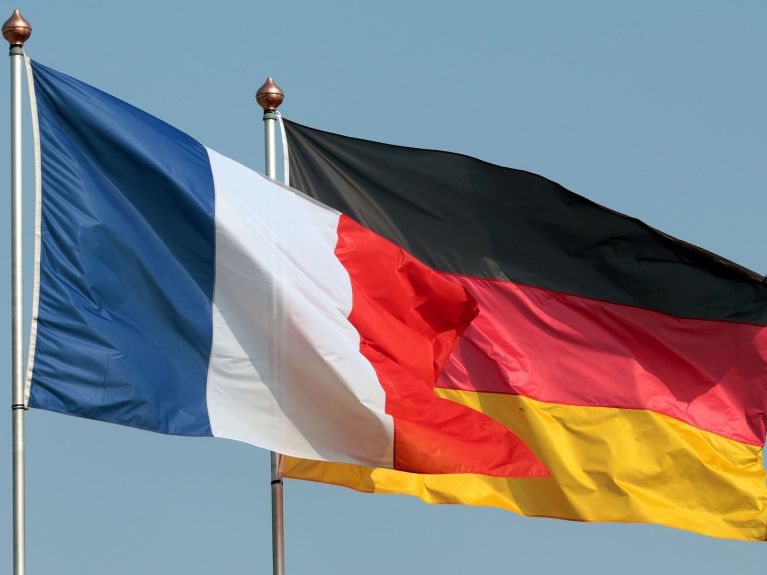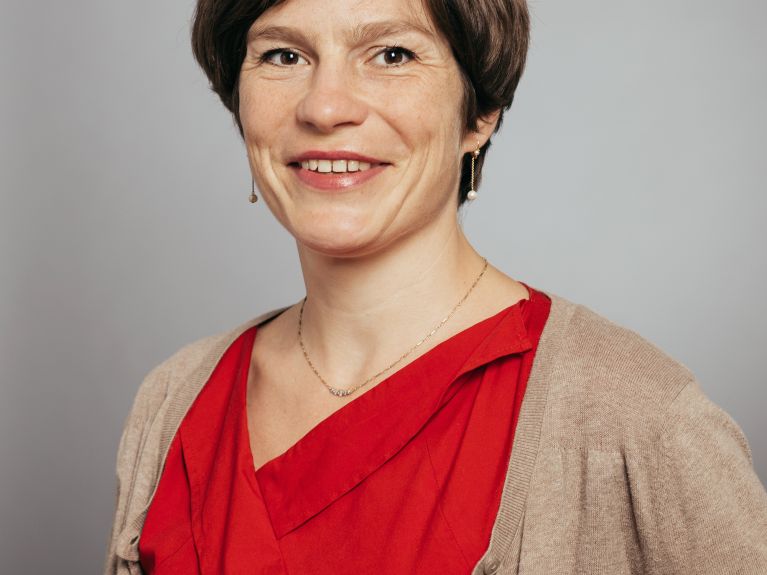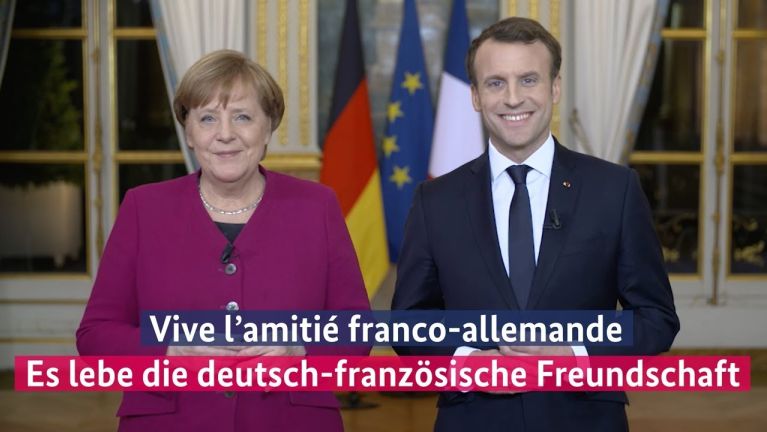A very special relationship
What links Germany and France – and why the two partners are sometimes entirely unable to understand what is happening in the neighbouring country.

Even the best friendship needs some new impetus from time to time. 55 years after the signing of the Élysée Treaty, Germany and France plan to renew this declaration of reconciliation and friendship – a good reason for an interview with Miriam Hartlapp. She runs the Research Center for Comparative Politics and Policy of Germany and France at Freie Universität Berlin.
Ms Hartlapp, would you say that relations between German and France are better today than ever before?
It’s hard to say. Both countries are certainly showing a great deal of interest at present in the government and politics of the other. This is partly because Brexit has shifted attention to an even greater extent to the Franco-German tandem in the EU. And it has a lot to do with the fact that both countries face similar challenges.

And what are these challenges?
There are the typical challenges faced by modern democracies, such as the rise in right-wing populism and the criticism that politicians are too far removed from ordinary people. There is growing awareness of these challenges in both countries, and it is natural that senior politicians are keen to see how their counterparts in their partner country respond.
This treaty of reconciliation will not be simply done and dusted one day.
Nonetheless, there are also differences – in the political system, for instance. For Germans it is unusual for a person who does not belong to any conventional party to become the head of government, as is the case with Emmanuel Macron.
The party system in France is indeed quite different to that in Germany, and is much more fluid. New parties are frequently founded, even around individuals. The election systems likewise differ considerably. The first-past-the-post system in France for example recently meant that the Front National – despite gaining nearly 34 percent of the vote in the second round of presidential elections – only acquired eight seats in the National Assembly. The AfD in Germany won 12.6 percent of the votes in the general election, and has 94 seats in parliament.
How are the protracted coalition negotiations in Germany viewed in France?
In recent weeks, I have had considerable trouble explaining to my French colleagues what is happening here in Germany at the moment. That is not something they are familiar with from their own political system. And there are other differences: the way society’s interests are represented in social policy is not at all similar. Approaches to designing policy with unions and employer associations differ. There are far more conflicts in France, as there are considerably more unions with varying positions.
Germany and France decided in early 2018 to draw up a kind of “new Élysée Treaty”. What is the significance of this?
The Élysée Treaty has great historical significance. Any signal to renew or strengthen it shows that this treaty of reconciliation will not be simply done and dusted one day. It is a permanent fixture of our political and societal life.
The idea was as follows: ‘If we wish to take reconciliation seriously, we need to involve future generations.’
What will be the main areas of focus in the new treaty?
The proposal was driven forward to a major extent by the parliaments – in other words there is also a desire at parliamentary level to create a more intensive exchange. The second important part is the agreement on common stances in foreign, European and defence policy. France in particular has a great interest in this – for Germany it is more difficult due to its history and because its population has a different attitude towards military deployment. The third part concerns questions of education and youth, such as the work of the Franco-German Youth Office. What is more, greater emphasis is to be placed on economic cooperation in border regions: there is a desire to consider joint infrastructural projects and to collaborate on a very concrete level in the areas of education and health. Then there is the matter of the Franco-German economic area, a small version of the European Single Market. It is to be further deepened, with corporate, tax and insolvency laws harmonised.
Dieses YouTube-Video kann in einem neuen Tab abgespielt werden
YouTube öffnenThird party content
We use YouTube to embed content that may collect data about your activity. Please review the details and accept the service to see this content.
Open consent formWhich challenges do the partners face in their future collaboration?
They have to make it quite clear that the European project is not geared only to social and economic elites. Both governments have seen in the most recent elections that there is a fundamental problem here, and that they have to make policy for everyone. I will be very interested to see how they manage this.
Is it your impression that the political ties between the two countries are also thriving at civil society level?
That was enshrined in the Élysée Treaty in a strategically clever manner. The idea of the partners was as follows: ‘If we wish to take reconciliation seriously, we need to involve those generations who are to support the economic and political cooperation in future. We must give them the chance to learn the language of the other country and to gain an understanding of how people there live and think.’ This impetus is already there – to a greater extent in the Élysée Treaty than in other international treaties – and there is a desire to further strengthen it.
Interview: Helen Sibum
Research Center for Comparative Politics and Policy of Germany and France

